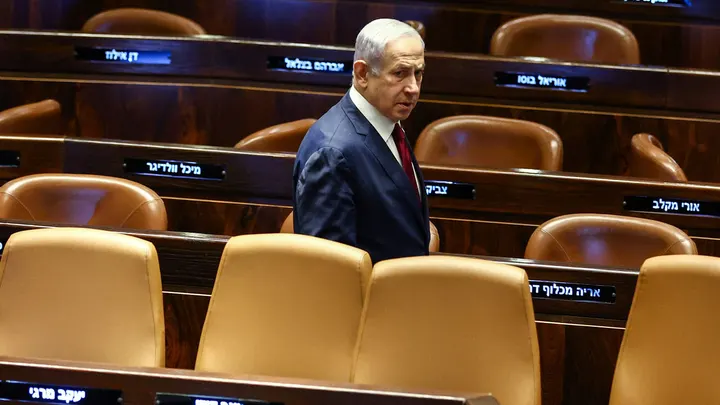Amid the Gaza war that has gripped the region for five months, a significant split within Israel’s unity government signals a pivotal moment that might hint at the early stages of election campaigning. This development comes as the centrist bloc led by former Defense Minister Benny Gantz disbands, creating ripples through the political landscape and adding to the pressure on Prime Minister Benjamin Netanyahu.
The unity government, a fragile coalition formed in response to the Hamas-led attack on Israel in October, witnessed a surprising move by Gideon Saar, a former justice minister and a key figure in Netanyahu’s right-wing Likud party. Saar declared his departure from the partnership with Gantz, opting instead to form a new center-right faction in parliament. This decision underscores the intricate dynamics of Israeli politics and reflects the deepening divisions within.
Analysts interpret this schism as a resurgence of the traditional political rivalry in Israel, marking a return to the conventional right-wing versus center-left contention. Amit Segal, a prominent columnist for the N12 news outlet, emphasized that this shift is indicative of a broader split in Israeli politics, reigniting the ideological battle lines drawn before the war’s outbreak.
The timing of the breakup is critical as it unfolds amidst an ongoing conflict, raising questions about the coalition’s durability and the potential for an early election. Although such political realignments are commonplace in Israel’s complex political scene, the current context is particularly charged due to the war’s exacerbating impact on national unity.
Benny Gantz, regarded as a strong contender for Israel’s prime ministerial role, has already caused a stir among right-wing and religious nationalist coalition members with his unapproved diplomatic visits to Washington and London. In a plea for solidarity, Gantz addressed the parliament, acknowledging the challenges within the government’s operations but urging for a unified approach towards national interests.
This unfolding scenario highlights the volatile nature of Israeli politics, where the urgencies of war coexist with the strategic calculations of election politics. As the country navigates through these tumultuous times, the focus remains on how these internal dynamics will influence Israel’s domestic and international stance.







